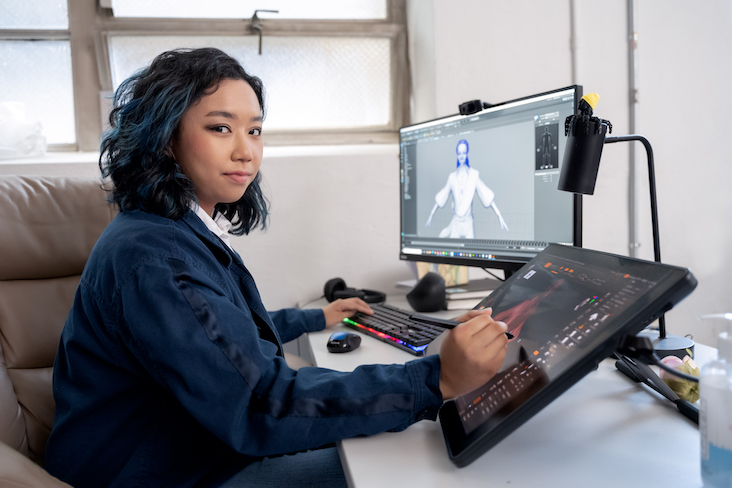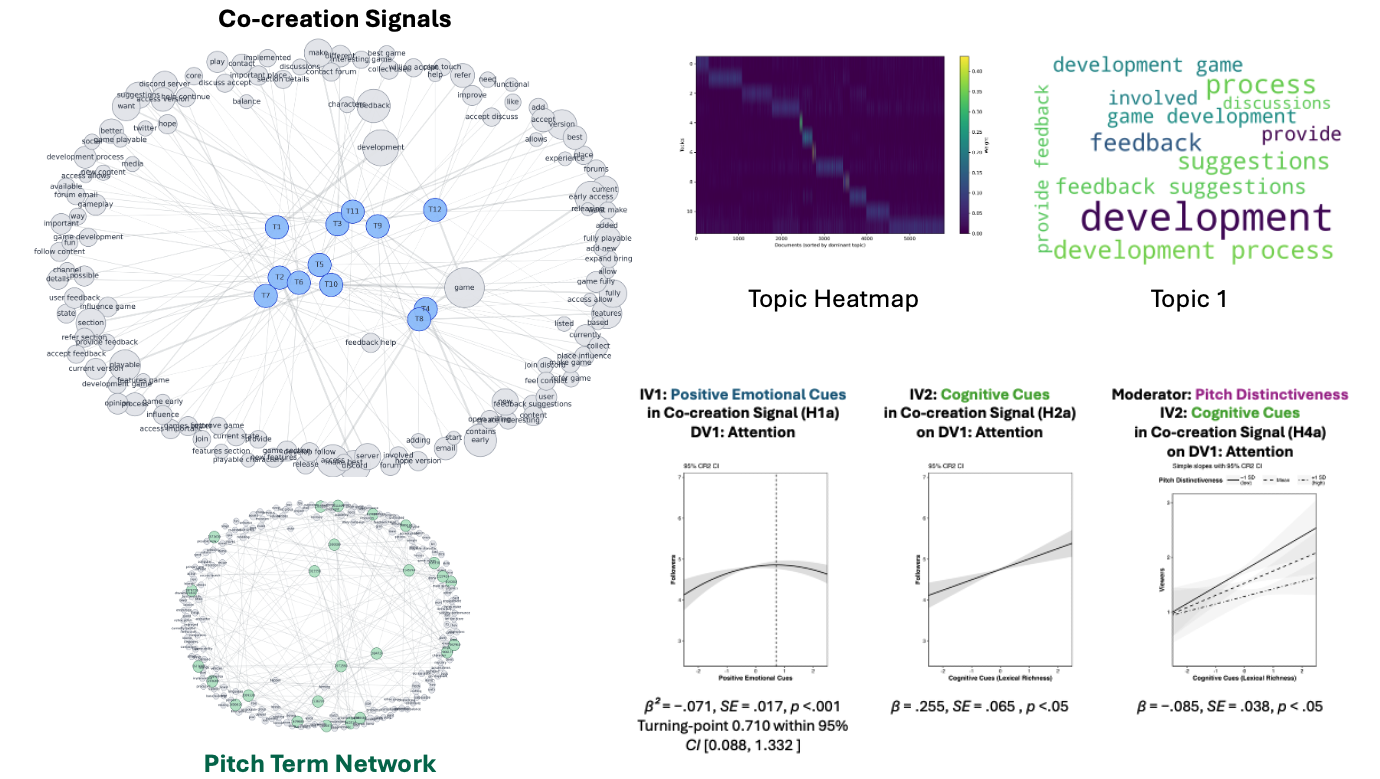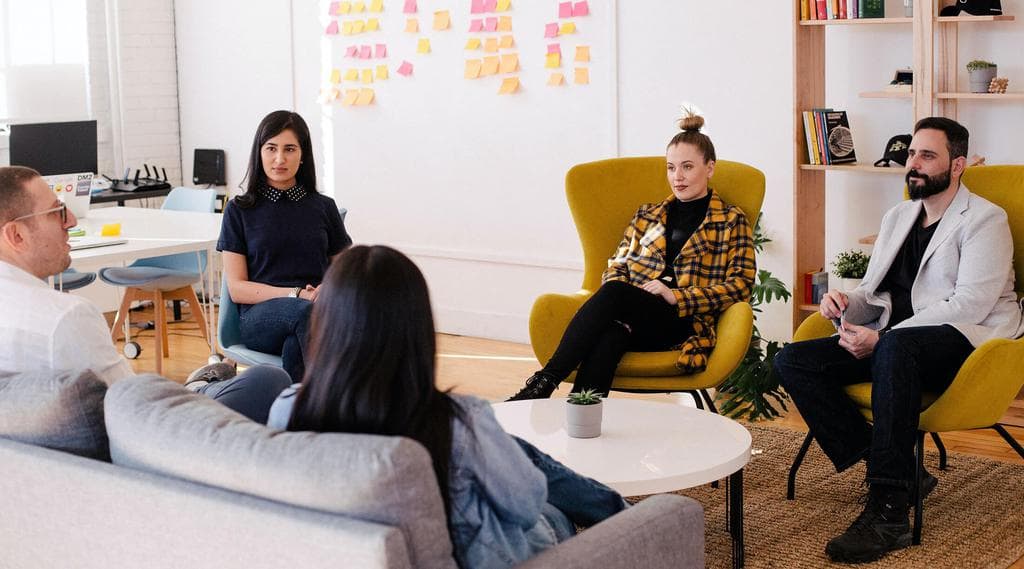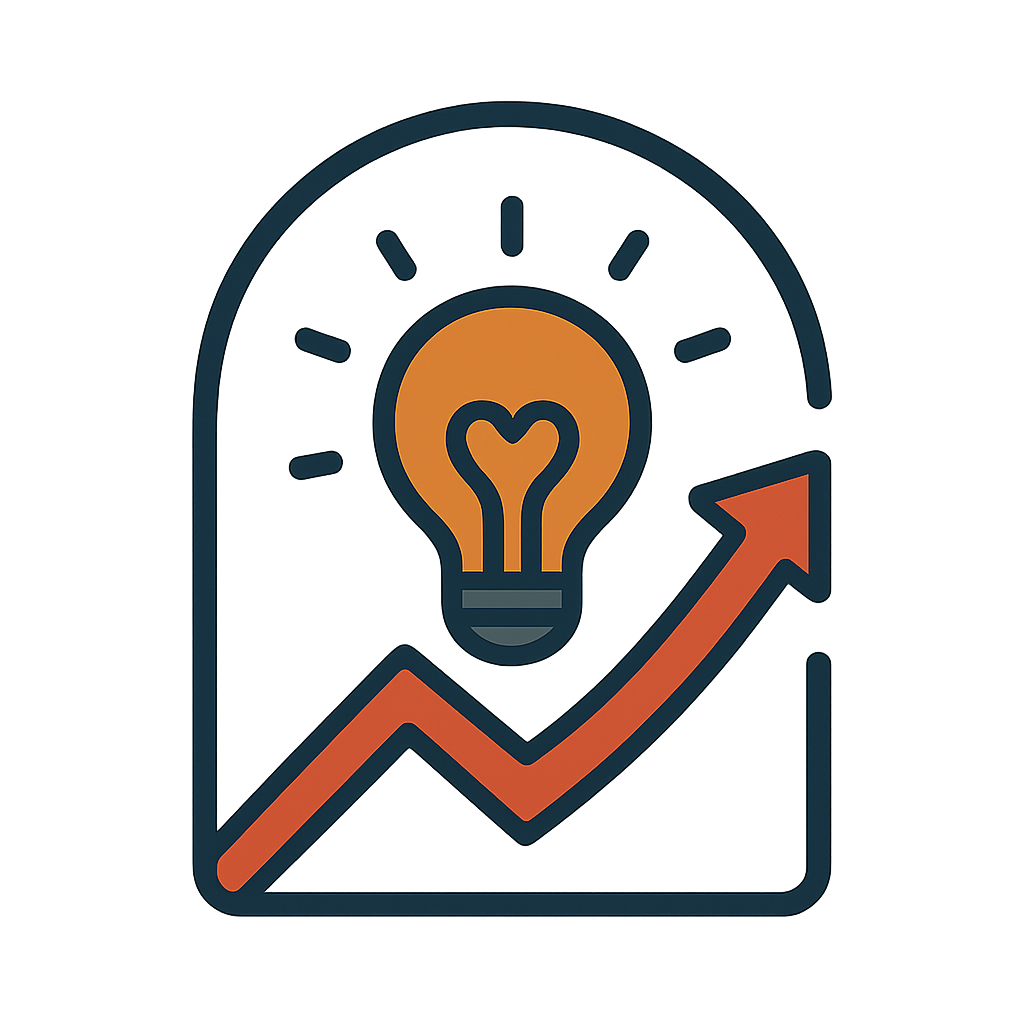RESEARCH

Co-creation Incompleteness: Engage Early Users Through Idea Pitching
Yanbo Song (Dissertation)
Translating creative ideas into innovation often requires balancing clarity of vision with openness to feedback. This study introduces the concept of co-creation incompleteness—a communicative approach through which creators frame early-stage ideas as incomplete yet promising to invite collaboration. Drawing on signaling theory, I argue that two types of signals in idea pitches—co-creation signals (explicit invitations for collaboration) and incompleteness signals (linguistic cues of uncertainty and developmental framing)—jointly enhance early user engagement by clarifying creators' willingness and readiness to co-develop ideas. Using a large-scale study of 1,921 Early Access video game pitches on Steam, I find that both signals positively predict user engagement and that their joint benefits weaken when pitches are highly distinctive, consistent with the idea of optimal incompleteness. The findings highlight how communicative framing transforms unfinished ideas into collaborative opportunities and how balancing structure and ambiguity fosters participatory co-creation.
Keywords: pitching; signaling; optimal distinctiveness; open innovation; creative communication; Early Access; user engagement; video game industry


2.
Point Break? The Efficacy of Creative Differences as a Protective Label for Future Work
Spencer H. Harrison, Patrick Reilly, Yanbo Song, and Khwan Kim
https://journals.aom.org/doi/10.5465/amj.2023.0759
Creative projects require teams to both generate and integrate divergent ideas. While divergent ideas are necessary for creative success, they can also foster disagreements that can lead to collaborative breakdowns where individuals leave a project. Because creative work requires a strong reputation for moving from project to project, collaborative breakdowns threaten the ability to secure future work opportunities. We conduct a qualitative and a quantitative study to investigate the effectiveness of "creative differences" as a protective label for individuals that leave creative projects. Our inductive, qualitative analysis of interviews with Hollywood professionals reveals the potential for reputational damage following a collaborative breakdown, as well as the role of "creative differences" as a professionally ambiguous attribution meant to mitigate this damage. However, our informants offer conflicting views on its efficacy. From these insights, we abductively test hypotheses in a quantitative study examining directors who depart films due to creative differences, comparing them with those who leave for other reasons. Our study contributes by uncovering a novel dilemma in creative work—the role of collaborative breakdowns—and the potential hazards of relying on professionally ambiguous attributions as reputational shields for future career opportunities.
Keywords: creativity, collaboration, conflict, leadership, career, mixed-approach

Inter-team competition and job crafting: Moderation of leadership orientation [Title redacted for peer review]
In collaboration with Jiang, W. Y.
Conditionally accepted at Journal of Business and Psychology
How does competition between teams shape how team members proactively redesign their work? This study explores the interaction effects of inter-team competition and leadership orientation on job crafting in a multi-team setting. Drawing on social comparison and self-regulation theories, we argue that moderate competition motivates crafting, while excessive competition undermines it. We tested this inverted U-shape using interview and survey data from 133 teams and 722 employees in a Chinese restaurant chain during the pandemic. Results show that task, relational, and cognitive crafting peak under moderate competition. Moreover, task-oriented leadership buffers competition for task crafting. These findings reveal how competitive pressure and leadership styles interact to shape proactive behavior—and offer practical insights for enabling thoughtful, adaptive work design.
Keywords: job crafting, proactivity, competition, leadership, quantitative study

Divergence and distribution of positive effect among co-founders and early venture assessments [Title redacted for peer review]
In collaboration with Milovac, M. and Sanchez-Burks, J.
In preparation to sumit at Strategic Management Journal
When co-founders pitch a new venture, how they express emotion can shape how their startup is judged. Across two studies, we examine how divergence and distribution of positive affect between co-founders influence investor evaluations. In Study 1, we analyze pitch videos submitted to top accelerators and find that emotional divergence—when co-founders show different levels of enthusiasm—boosts early-stage funding and growth, especially when they hold distinct functional roles. In Study 2, an experiment reveals that investors respond most favorably when co-founders in creative roles express more positive affect. Together, the findings show how emotional dynamics signal complementarity and shape perceptions of venture potential.
Keywords: co-founding, affect, perception, early-stage entrepreneurship, mixed-approach
